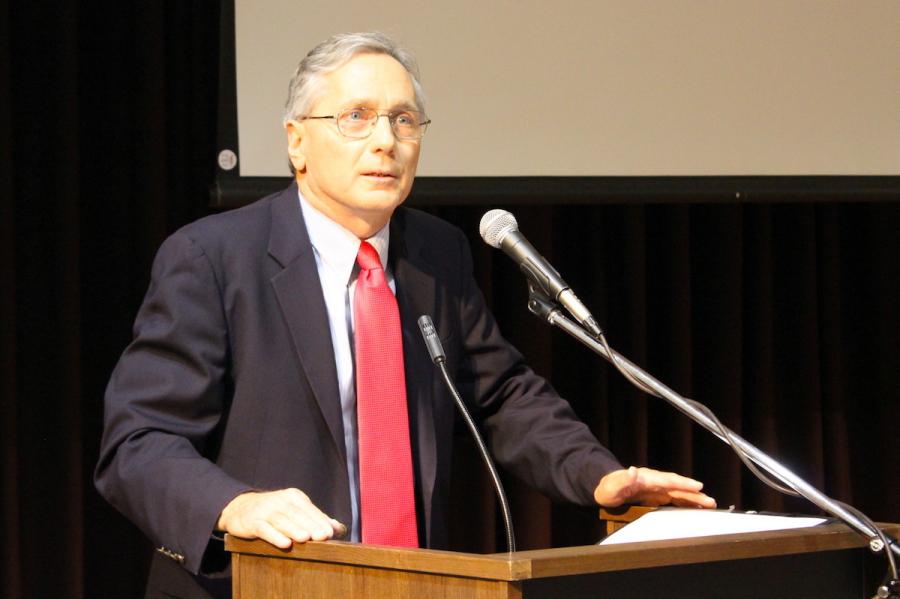Like this article? rabble is reader-supported journalism. Chip in to keep stories like these coming.
It is always stimulating to hear someone knowledgeable talk about an issue in a way that leads one to deeper understanding. Gerard Powers did that recently at Ottawa’s Saint Paul University in a speech regarding extremism, conflict and peacebuilding. Powers is the director of Catholic peacebuilding studies at the Kroc Institute for International Peace Studies at Notre Dame University in Indiana. Powers made two basic points.
‘Wars of religion’
One is that the “war of religions” paradigm is frequently unhelpful and diverts attention away from other causes of conflict such as the role played by the foreign policy of nations, including those of the West. The second point is that religious actors are playing an important role on a daily basis in what Powers called the “peace of religion.” He described those efforts as “unheralded, under-appreciated and under-analyzed.”
Some of the world’s conflicts, Powers said, certainly do involve religious extremists such as ISIS in the Middle East, but there are often multi-faceted dynamics at work which are not primarily religious in nature. The rise of ISIS, for example, has included support from former secular Bathists in Iraq who were sidelined when the United States toppled the regime of Saddam Hussein. As well, Iraqi Sunni tribes fear the Shiite-dominated Iraqi governments installed by the U.S. even more than they fear ISIS.
Powers said that Catholic and Protestant leaders in the U.S. had warned against military intervention in Iraq but the U.S government did not heed that advice.
‘Peace of religion’
Regarding peacebuilding, Powers said, religious leaders and ordinary people motivated by their faith have do important work in conflict zones throughout the world, including Iraq, Syria, Uganda, South Sudan and Northern Ireland. In many societies religious institutions are ubiquitous and can be present in places and situations where secular and government negotiators fear to tread.
In Colombia, for example, a local priest might travel in “no-go” areas and reach out to rebel leaders as a pastor who tends to both the victims and perpetrators of violence. He might even hear a killer’s confession.
The “track two” or soft power diplomacy provided by religious and other civil society actors, said Powers, supplements what he called the “track one” diplomacy engaged in by politicians and diplomats.
Powers said the “peace of religion” efforts would be even more widespread and effective if a greater number of people in leadership and in the pews understood peacebuilding as integral to their faith and to the vocation of their religious institutions.
Poor diplomacy
Powers added that there is among Western governments a secular bias which ignores religion, wishes it would go away, or that, at the least, it would remain a private activity with no influence in the public square. This lack of sympathy and understanding leads Western countries into foreign diplomacy that supports what they consider “good religion” while at the same time discrediting “bad religion” in foreign countries.
This, Powers said, is a self-serving approach that rarely works and often plays into the narrative of religious extremists such as those in ISIS.
This piece ran as a blog on the United Church Observer website on April 14, 2016.
Like this article? rabble is reader-supported journalism. Chip in to keep stories like these coming.




